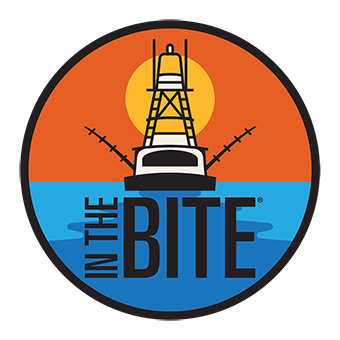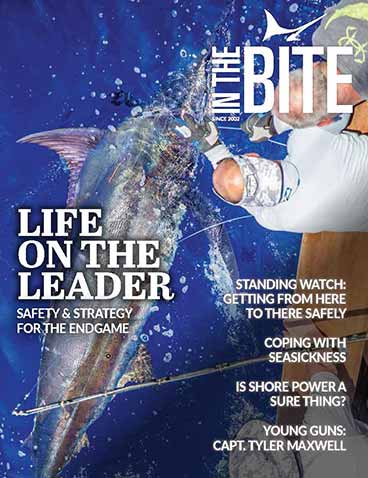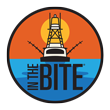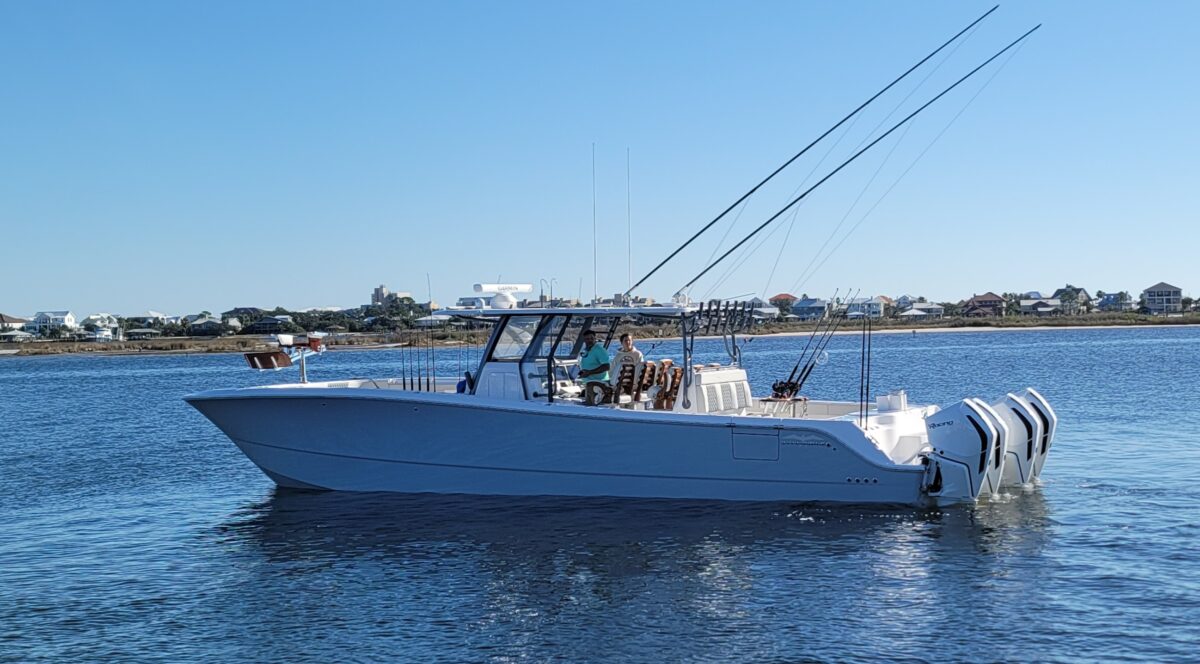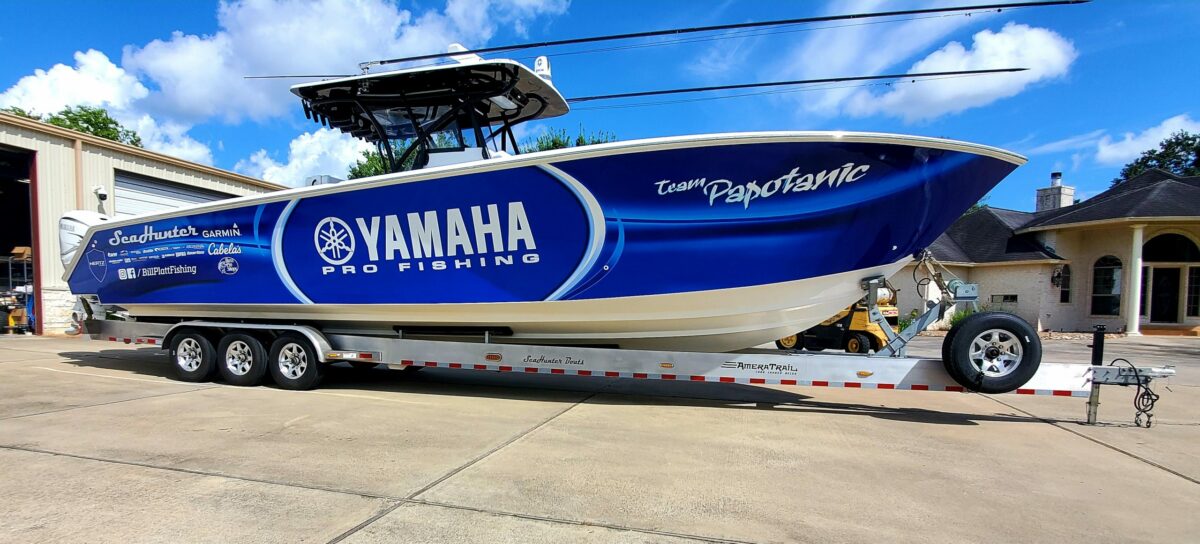With today high-tech center consoles, multi-day trips are becoming more prevalent as the load carrying capability, range, and creature comforts continue to improve. Planning a long-range trip aboard an open fisherman requires a multitude of inspections, safety checks and logistical considerations, but with proper attention a trip over the horizon can be both rewarding and productive.
Safety should always be at the forefront of planning a long-range trip and venturing offshore without an EPIRB, life raft and ditch bag with basic survival gear and handheld VHF radios should never be an option. The adage, Better to have, and not need, than to need, and not have, applies foremost to safety gear. A satellite phone, SPOT, Garmin inReach, or other satellite-based communication system is a must to have on board, and dont forget about leaving a float plan.
Equally important in this groundwork is the consideration of the realistic range of the boat. You need to have a good idea of the vessel fuel burn under a heavy load in moderate seas”not what the boat burns with a quarter tank of fuel on a flat bay. When calculating range, I recommend leaving 20 to 25 percent of your fuel as a reserve. This also ensures that if your estimates are off due to weather, or if you end up pushing the limits of your range more than originally planned, then you can still make it home, and with some fuel to spare.
It is also important to consider the amount of fuel that will be burned at idle and while fishing for the duration of the trip, not just what you burn from point A to B. Many crews in the Gulf employ the use of fuel bladders to extend their range for multi-day trips and when properly and safely used, a fuel bladder can allow for a much longer trip duration.
 In addition, always make certain your outboard maintenance is up to date, keeping in mind that the motors could accumulate 40 to 50 hours on a two-day trip with constant use. Inspection of props, seals and fluid levels prior to departure is a must and can identify minor problems that could become major issues once offshore. Keeping a couple of spare props on board is never a bad idea, and in the event of a spun hub it could be the difference in salvaging the trip or limping home.
With safety, maintenance and fuel range taken care of, it time to turn your attention to loading the boat for fishing. One of the more common issues I see on a regular basis is the desire to take way too much stuff on these types of trips. While I do not want to be without a necessary piece of gear while drifting 200 miles offshore, it is important to have the essentials organized and accessible.
Being realistic about the gear required and not overloading the boat aids in organization and will assist the entire crew with the knowledge of where things are and how to access them. Devising a load plan for the boat and keeping that strategy similar from trip to trip will help both the captain and crew to be a more effective and efficient fishing team.
Simple organizational tactics such as keeping food and bait in separated coolers may seem like common sense, but more than once Ive had a sandwich that tasted just a little too much like ballyhoo. Ice consumption is also an important aspect to consider. Keeping food and drinks cold during the summer months burns up more ice than you would think. One crew member should be tasked solely with cooler duty, making sure that the food coolers stay drained of excess water, the bait and catch stay well iced, and that the ice levels are monitored and restored. No one wants a waterlogged chicken wing for lunch on the second day of the trip!
Keeping live bait for long periods during the hot summer months can be problematic as well, especially with some of the less hardy species such as sardines or herring. Make certain that you have as much bait as possibly needed but remember that an overloaded livewell will create a bait shortage just as quickly as not catching enough bait in the first place. Dont overlook catching bait on-site.
Sleep is also an often-neglected aspect of spending a long period of time on the water. Apart from a few of the new jumbo center consoles, the odds of being equipped with a cabin are slim. Bean bags, inflatable sleeping mats and even empty fish bags can make for a decent place to get some rest. Try to have a plan in place for everyone aboard. Even a quick 30-minute nap can make a huge difference in alertness and performance.
If you are considering venturing out on an overnight trip for the first time, or if you are a seasoned pro who runs multi-day center console trips regularly, there is always room to learn new things to make life easier. Take note mentally of things that can be improved from trip to trip and apply those changes as you strive to become a better fisherman.
In addition, always make certain your outboard maintenance is up to date, keeping in mind that the motors could accumulate 40 to 50 hours on a two-day trip with constant use. Inspection of props, seals and fluid levels prior to departure is a must and can identify minor problems that could become major issues once offshore. Keeping a couple of spare props on board is never a bad idea, and in the event of a spun hub it could be the difference in salvaging the trip or limping home.
With safety, maintenance and fuel range taken care of, it time to turn your attention to loading the boat for fishing. One of the more common issues I see on a regular basis is the desire to take way too much stuff on these types of trips. While I do not want to be without a necessary piece of gear while drifting 200 miles offshore, it is important to have the essentials organized and accessible.
Being realistic about the gear required and not overloading the boat aids in organization and will assist the entire crew with the knowledge of where things are and how to access them. Devising a load plan for the boat and keeping that strategy similar from trip to trip will help both the captain and crew to be a more effective and efficient fishing team.
Simple organizational tactics such as keeping food and bait in separated coolers may seem like common sense, but more than once Ive had a sandwich that tasted just a little too much like ballyhoo. Ice consumption is also an important aspect to consider. Keeping food and drinks cold during the summer months burns up more ice than you would think. One crew member should be tasked solely with cooler duty, making sure that the food coolers stay drained of excess water, the bait and catch stay well iced, and that the ice levels are monitored and restored. No one wants a waterlogged chicken wing for lunch on the second day of the trip!
Keeping live bait for long periods during the hot summer months can be problematic as well, especially with some of the less hardy species such as sardines or herring. Make certain that you have as much bait as possibly needed but remember that an overloaded livewell will create a bait shortage just as quickly as not catching enough bait in the first place. Dont overlook catching bait on-site.
Sleep is also an often-neglected aspect of spending a long period of time on the water. Apart from a few of the new jumbo center consoles, the odds of being equipped with a cabin are slim. Bean bags, inflatable sleeping mats and even empty fish bags can make for a decent place to get some rest. Try to have a plan in place for everyone aboard. Even a quick 30-minute nap can make a huge difference in alertness and performance.
If you are considering venturing out on an overnight trip for the first time, or if you are a seasoned pro who runs multi-day center console trips regularly, there is always room to learn new things to make life easier. Take note mentally of things that can be improved from trip to trip and apply those changes as you strive to become a better fisherman.
